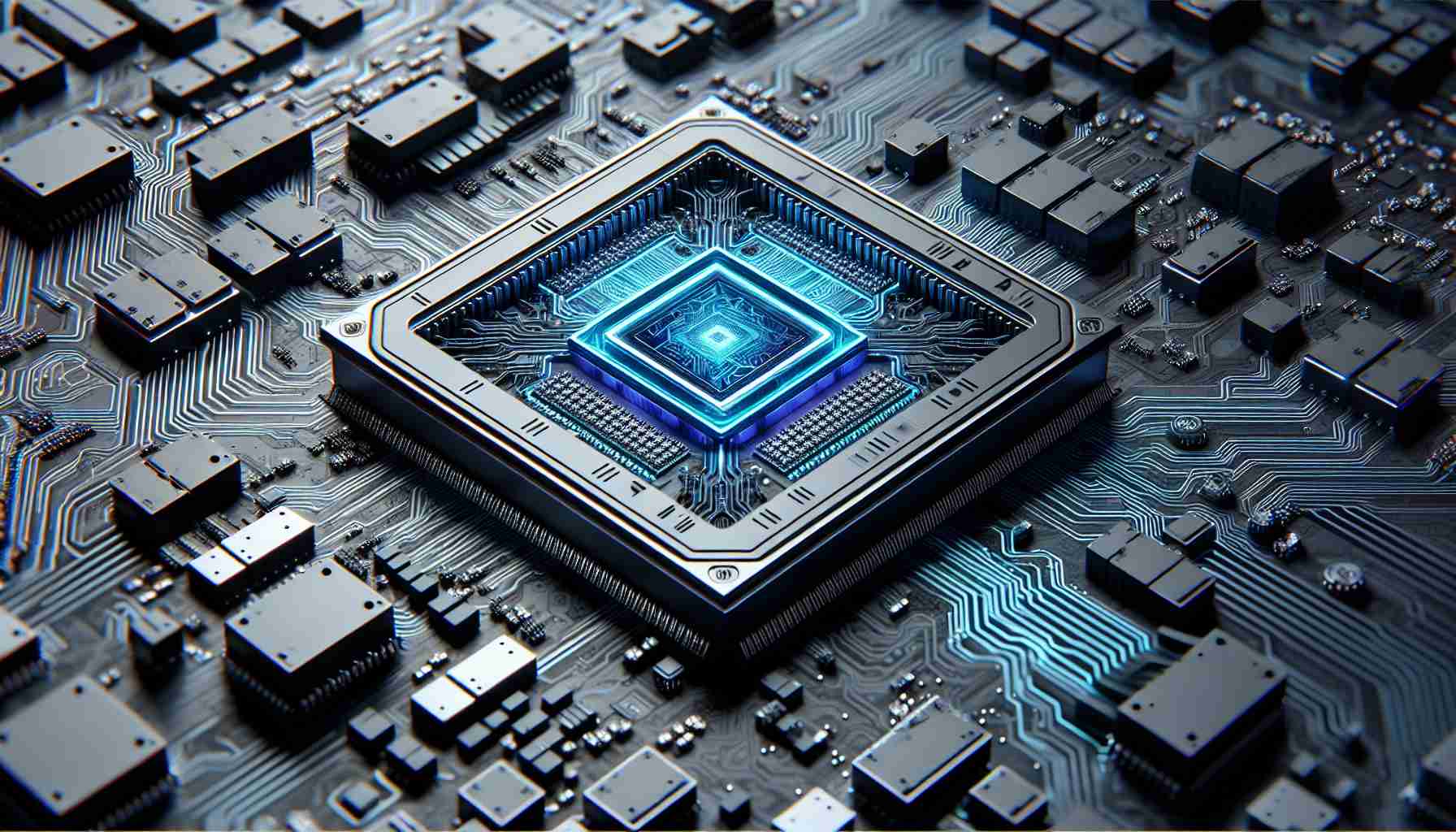Samsung Electronics Co., the global leader in semiconductor manufacturing, is on the brink of revolutionizing the industry with its artificial intelligence (AI) strategy. While semiconductor stocks soared worldwide, Samsung initially lagged behind. However, newfound optimism surrounding its AI capabilities has propelled the company to the forefront of the pack.
Analysts and investors are recognizing that AI technology will significantly increase the demand for NAND memory, in which Samsung holds the largest market share. Additionally, the high-bandwidth memory sector, dominated by rival SK Hynix Inc., is expected to experience growth. Samsung, possessing an impressive 32% gain in the past year, is poised for even greater growth as compared to other industry players.
“We expect some catalyst to occur for that upside to be materialized in Samsung,” noted Christine Phillpotts, a portfolio manager at Ariel Investments LLC. She further emphasized the need for investment diversification within the memory chip value chain.
Samsung’s recent outperformance in the AI market can be attributed to an endorsement by Jensen Huang, the CEO of AI titan, Nvidia Corp. This endorsement fueled expectations for a lucrative HBM supply deal in the near future, allowing Samsung to effectively compete with SK Hynix. With their established market presence, Samsung has an advantage in gaining a significant foothold in this battle.
Citigroup analyst Peter Lee delivered an additional boost to Samsung’s prospects by highlighting the potential “replacement cycle” where solid-state drives (SSD) may substitute hard-disk drives (HDD) in AI applications. Since SSDs rely on NAND memory for storage, Samsung is in a prime position to capitalize on this shift. Lee emphasized that SSDs are far more suitable for AI training applications due to their speed advantage, being 40 times faster than HDDs.
The consensus among analysts is that Samsung’s stock price is expected to rise by 17% in the next year, outperforming both SK Hynix and Nvidia. Furthermore, the company’s earnings outlook is also encouraging, with operating profit for the first quarter surpassing analyst estimates.
While Samsung’s performance has improved, it still trails behind other major Asian chip manufacturers, including Taiwan Semiconductor Manufacturing Co. and Japan’s top chip-equipment makers. However, Jae Lee, the chief investment officer at Timefolio Asset Management SG, sees tremendous potential for Samsung. In an interview, he expressed his confidence in the company and emphasized the need for Samsung to provide more clarity regarding its HBM strategies to cement its position as an AI industry leader.
The recent rebound in the NAND market, as top-tier US tech firms rapidly switch from HDDs to enterprise SSDs, further fuels the profitability of chipmakers specializing in NAND technology. This shift reflects the growing recognition that HDDs are too slow and incapable of quickly reading data.
Samsung’s ascendancy in the AI-driven semiconductor market is set to reshape the industry landscape. With its extensive market share in NAND and a potential HBM supply deal on the horizon, the company is well-positioned to lead the charge in this rapidly expanding field.
Frequently Asked Questions (FAQ)
- What is NAND memory?
- What is HBM?
- Why are solid-state drives (SSD) favored for AI applications?
- Who are Samsung’s main competitors in the semiconductor market?
- Where can I find more information about this topic?
NAND memory is a type of non-volatile storage technology commonly used in electronic devices to store data. It provides high-speed data access and has a larger capacity compared to other memory types.
High-Bandwidth Memory (HBM) is a specialized type of memory technology used in computer systems, specifically in graphics cards and high-performance computing. HBM offers a significant increase in bandwidth, improving data transfer speeds and overall system performance.
SSDs are preferred for AI applications due to their superior speed and performance. They provide faster data access, allowing AI systems to process information more efficiently, resulting in improved training and inference capabilities.
Samsung’s main competitors in the semiconductor market include SK Hynix, Taiwan Semiconductor Manufacturing Co., and various chip-equipment makers from Japan.
For more information about Samsung’s role in the AI-driven semiconductor market, please visit Bloomberg.
Samsung Electronics Co. is not only a global leader in semiconductor manufacturing but is also poised to revolutionize the industry with its artificial intelligence (AI) strategy. The demand for NAND memory, in which Samsung holds the largest market share, is expected to significantly increase due to the advancement of AI technology. Additionally, the high-bandwidth memory sector, dominated by rival SK Hynix Inc., is anticipated to experience growth. As a result, Samsung’s stock price is projected to rise by 17% in the next year, outperforming both SK Hynix and Nvidia.
One of the catalysts for Samsung’s recent success in the AI market is its endorsement by Jensen Huang, the CEO of Nvidia Corp. This endorsement has fueled expectations for a lucrative High-Bandwidth Memory (HBM) supply deal, giving Samsung a competitive edge against SK Hynix. Samsung’s established market presence uniquely positions the company to gain a significant foothold in this battle.
Citigroup analyst Peter Lee highlights a potential “replacement cycle” where solid-state drives (SSD) may replace hard-disk drives (HDD) in AI applications. As SSDs rely on NAND memory for storage, Samsung is well-positioned to capitalize on this shift. The speed advantage of SSDs, which are 40 times faster than HDDs, makes them far more suitable for AI training applications.
Although Samsung’s performance has improved, it still trails behind other major Asian chip manufacturers. To solidify its position as an AI industry leader, Samsung needs to provide more clarity regarding its HBM strategies, as stated by Jae Lee, the chief investment officer at Timefolio Asset Management SG.
The recent rebound in the NAND market, with top-tier US tech firms rapidly switching from HDDs to enterprise SSDs, further contributes to the profitability of chipmakers specializing in NAND technology. This shift reflects the growing recognition that HDDs are too slow and incapable of quickly reading data.
For more information about Samsung’s role in the AI-driven semiconductor market, you can visit Bloomberg’s website at Bloomberg.
The source of the article is from the blog papodemusica.com

